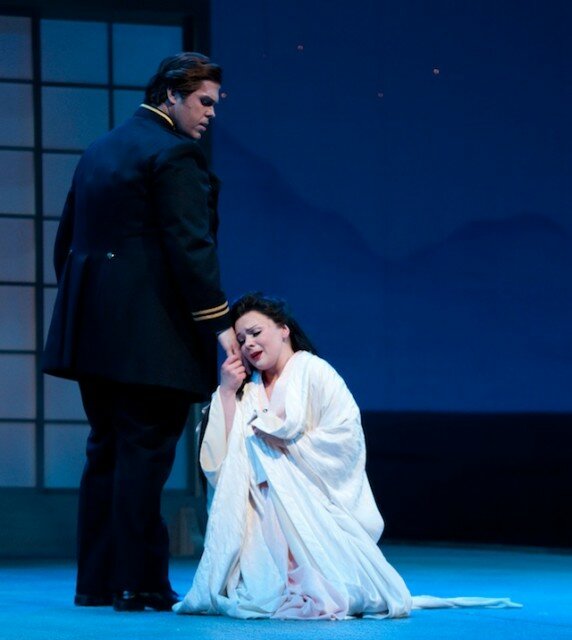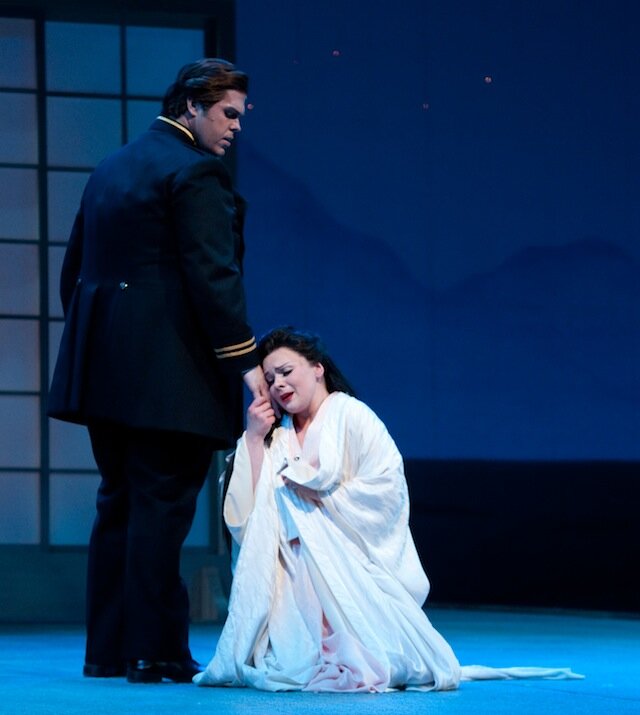
Audiences for Seattle Opera’s Sunday matinee performances of Puccini’s Madama Butterfly (one left, May 20; tickets) have been greeted with yet another instance of General Director Speight Jenkins’s almost unerring ear for new voices with new life to give to classic roles. Ausrine Stundyte, singing Cio-Cio-San, is a Lithuanian soprano (now living in Cologne). You pronounce it: “oh-shuh-REE-neh STOON-dee-teh.”
The most striking element of her Butterfly, besides the fact that you are hearing her first U.S. performances in the role, is the way Stundyte employs pianissimo to shade the character. It is not easy, actually, to sing very softly to the back seats of a 3,000-seat hall, but Stundyte delivered her notes, as if gift-wrapped, to the second balcony, where my seat was.
It means her version of “Un bel di” is often less anthemic than a feverishly whispered dream of her sailor’s return, though Stundyte is certainly capable of letting her voice swell in size. Because she is not a tiny Japanese girl, Stundyte lets pianissimi do the job of expressing demureness, shyness, as Pinkerton seduces her; later, it signifies her detachment from a harsher reality. Her Pinkerton Nathaniel Peake, sings beautifully, with power, but he’s too much the fresh-faced young American to sell you on the frat boy or playa ethos that is where that damaged, bluff character lives.
In an interview, Stundyte recounts how she came to discover the hidden depths to Butterfly:
I was surprised by how wonderfully it’s written, how true it is, and how nothing is cold or kitsch or empty. Everything is so psychological, and the character of Butterfly is nothing like I thought. I always thought she was naïve, like a child, but she actually has such great development.
That has to be part of Butterfly’s enduring success from generation to generation, that rediscovery of this anti-romantic “romantic” opera, its focus on the hardships of the single mother, which regretfully are so easily culturally transportable. Jenkins has a great line in his program notes where he speaks of the Italian core of Cio-Cio-San–opera is mostly predicated on our having an Italian soul (at least temporarily, in the theatre) that can commune with what we see and hear.
In Stundyte’s telling, you come to see the steely resistance to Butterfly–she moves from predicament to predicament, hoping for the best, but uncompromising. Her decision to die like a warrior, in this context, is still tragic, but also transgressive for an ex-geisha. Only someone who has honor to lose kills themself to save face.
